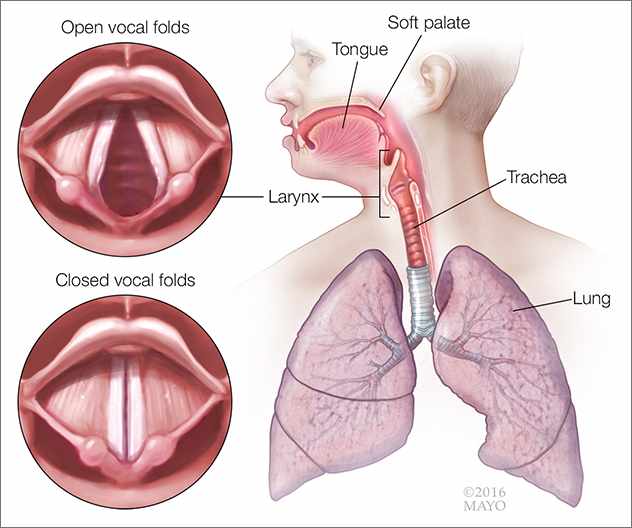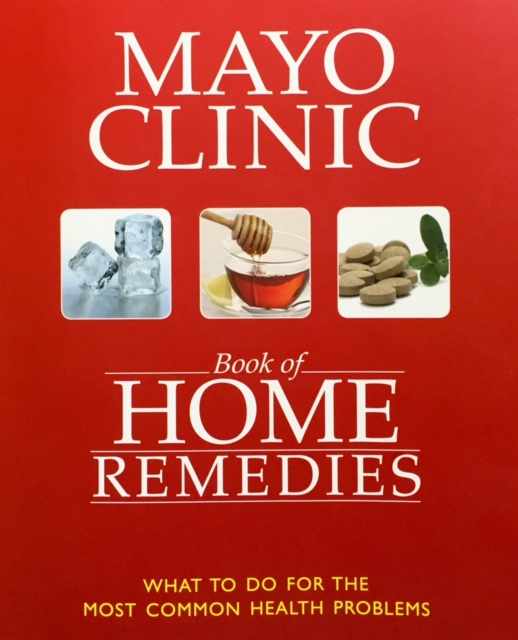-
Home Remedies: Helping a hoarse voice

You've likely had days when your voice sounds excessively husky, raspy or weak. You may have even lost your voice for a short time. Laryngitis is an inflammation of your voice box (larynx) from overuse, irritation or infection. Inside the larynx are your vocal cords — two folds of mucous membrane covering muscle and cartilage. Normally, your vocal cords open and close smoothly, forming sounds through their movement and vibration.
But in laryngitis, your vocal cords become inflamed or irritated. This swelling causes distortion of the sounds produced by air passing over them. As a result, your voice sounds hoarse. In some cases of laryngitis, your voice can become almost undetectable.
Laryngitis may be short-lived (acute) or long lasting (chronic). Most cases of laryngitis are triggered by a temporary viral infection or vocal strain and aren't serious. Persistent hoarseness can sometimes signal a more serious underlying medical condition.
Some self-care methods may relieve and reduce strain on your voice:
- Breathe moist air. Use a humidifier to keep the air throughout your home or office moist. Inhale steam from a bowl of hot water or a hot shower.
- Rest your voice as much as possible. Avoid talking or singing too loudly or for too long. If you need to speak before large groups, try to use a microphone or megaphone.
- Drink plenty of fluids to prevent dehydration (avoid alcohol and caffeine).
- Moisten your throat. Try sucking on lozenges, gargling with salt water or chewing a piece of gum.
- Stop drinking alcohol and smoking, and avoid exposure to smoke. Alcohol and smoke dry your throat and irritates your vocal cords.
- Avoid clearing your throat. This action irritates your vocal cords.
- Avoid decongestants. These medications can dry out your throat.
- Avoid whispering. This puts even more strain on your voice than normal speech does.

Acute laryngitis
Most cases of laryngitis are temporary and improve after the underlying cause gets better. Causes of acute laryngitis include:
- Viral infections similar to those that cause a cold
- Vocal strain, caused by yelling or overusing your voice
- Bacterial infections, such as diphtheria, although this is rare, in large part due to increasing rates of vaccination
Chronic laryngitis
Laryngitis that lasts longer than three weeks is known as chronic laryngitis. This type of laryngitis is generally caused by exposure to irritants over time. Chronic laryngitis can cause vocal cord strain and injuries or growths on the vocal cords (polyps or nodules). These injuries can be caused by:
- Inhaled irritants, such as chemical fumes, allergens or smoke
- Acid reflux, also called gastroesophageal reflux disease (GERD)
- Chronic sinusitis
- Excessive alcohol use
- Habitual overuse of your voice (such as with singers or cheerleaders)
- Smoking
Less common causes of chronic laryngitis include:
- Bacterial or fungal infections
- Infections with certain parasites
Other causes of chronic hoarseness include:
- Cancer
- Vocal cord paralysis, which can result from injury, stroke, a lung tumor or other health conditions
- Bowing of the vocal cords in old age
The Mayo Clinic Book of Home Remedies provides answers you need to take care of common health problems on your own. This reference covers 120 of today’s common health problems in an easy-to-follow, A-to-Z format. Learn what you can do for yourself and when to seek medical attention.








